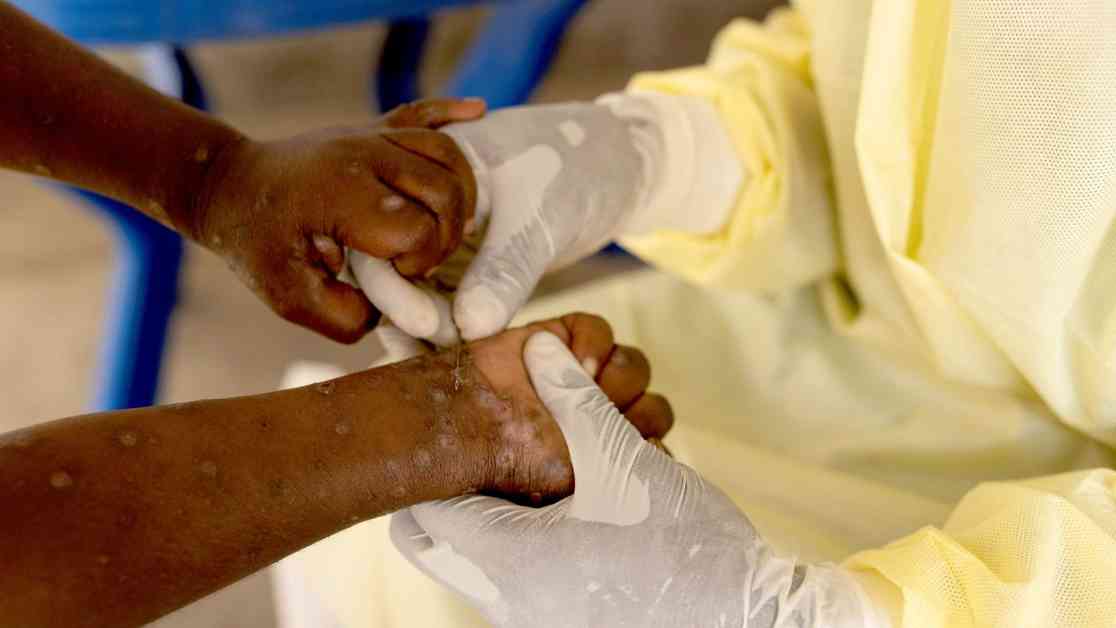A new strain of the mpox virus, known as Clade 1b, has been identified in the UK for the first time. This new variant is believed to cause milder symptoms compared to other strains of mpox, but it is more concerning to health officials due to its increased transmissibility, especially among children. The UK Health Security Agency (UKHSA) has stated that the risk to the population is currently “extremely low” as they trace fewer than 10 direct contacts associated with the case.
The case in the UK was confirmed by the UKHSA on Tuesday, with the individual involved having traveled back from Africa. Symptoms started to develop over 24 hours after returning to the UK, and the person was isolated while awaiting test results. The risk to the general UK population is considered low by Professor Susan Hopkins, the chief medical adviser at UKHSA.
Previously, the UK saw cases of mpox in 2022 during a global outbreak of a less infectious strain. The WHO declared a public health emergency due to the spread of the disease to over 100 countries. A vaccination program was launched in the UK in response to the outbreak, which successfully reduced the number of cases.
The Clade 1b strain has also been identified in other countries, including Sweden, Thailand, and India. The symptoms of mpox can vary, with common signs including skin rashes, fever, chills, swollen lymph nodes, and exhaustion. Severe cases of mpox can lead to bacterial infections, lung infections, and complications affecting the brain, heart, and lungs.
While there is no specific treatment approved for mpox infections, supportive care, and antiviral medications can help manage symptoms. A two-dose vaccine has been developed to protect against mpox, but there is limited availability in Africa. Scientists from the Africa CDC stress the need for more vaccine doses to combat the spread of the virus effectively.
Mpox, previously known as monkeypox, is a viral disease that has been endemic in parts of Africa for decades. It was first detected in humans in the Democratic Republic of the Congo in 1970. Due to concerns about the original name being considered racist and stigmatizing, the WHO officially renamed the disease to mpox in 2022.
In summary, the identification of the Clade 1b strain of mpox in the UK highlights the ongoing challenges of managing infectious diseases in a globalized world. Continued surveillance, vaccination efforts, and international cooperation are essential to prevent and control the spread of emerging viral variants like Clade 1b.




